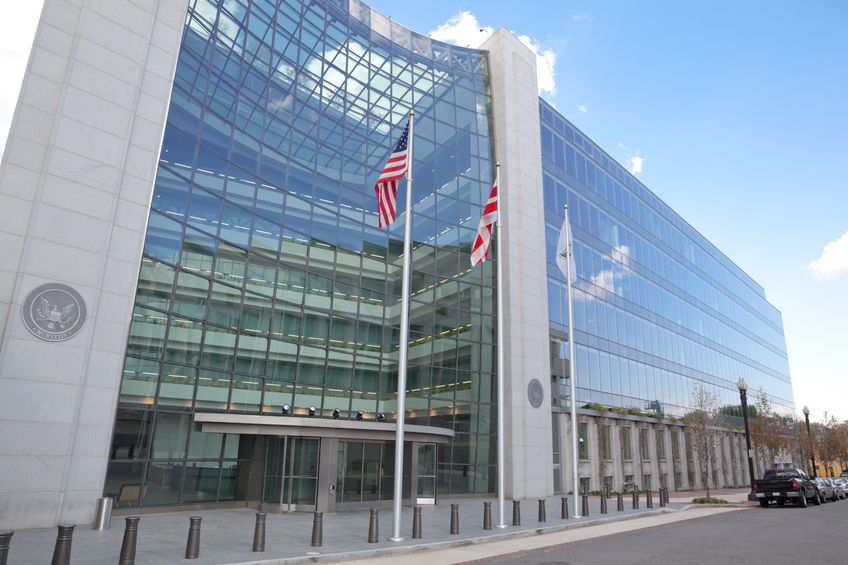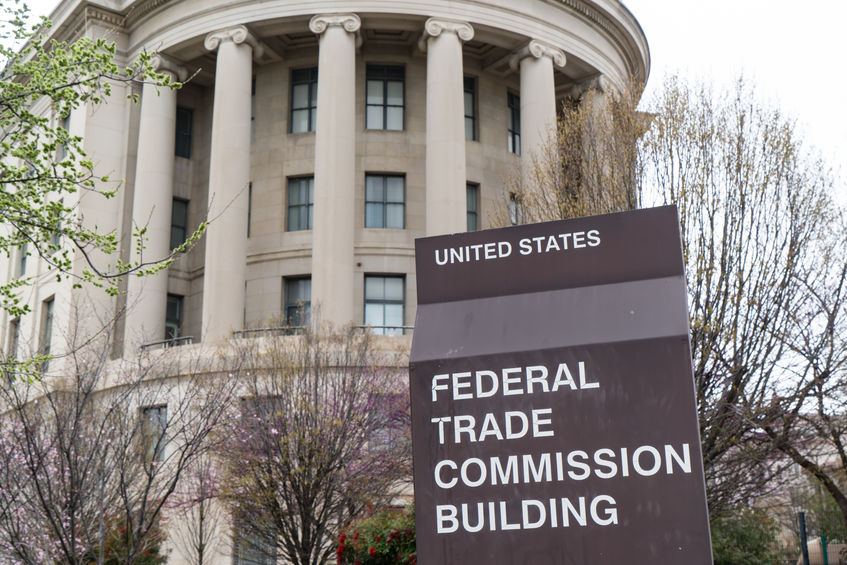Legal Briefs
Update on PAR Funding Case
July 27, 2021 Little has changed in the PAR Funding case since the last update. PAR’s assets are being handily liquidated by the Receiver while the defendants maintain that the Receiver intentionally destroyed a well-run business. Most recently, the defendants have asked the judge to “discharge” the Receiver.
Little has changed in the PAR Funding case since the last update. PAR’s assets are being handily liquidated by the Receiver while the defendants maintain that the Receiver intentionally destroyed a well-run business. Most recently, the defendants have asked the judge to “discharge” the Receiver.
It has been a year since the Philadelphia-based company was suddenly shuttered as word of an SEC case filed under seal became public. Attorneys for the SEC took issue with the way PAR kept its books and how it marketed itself to potential investors. From the start, the defendants strongly disagreed with the plaintiff’s assertions. After an independent Receiver was appointed, the judge has repeatedly deferred to his assessments and PAR’s business has been systematically dismantled in the process.
Anyone can access the ongoing court battle on the Receivership’s official website.
New York Appellate Division Reaffirms That Merchant Cash Advances Are Not Loans
June 23, 2021A series of eight merchant cash advance agreeements were not loans, said the First Department of the New York Appellate Division.
In Strategic Funding Source, Inc. et al. v. Steenbok Inc. et al, the defendants filed for summary judgment to dismiss the complaint. The Court denied it and defendants appealed, causing the Appellate Division to determine whether or not eight merchant cash agreements between the parties were actually usurious loans.
Per the eight merchant agreements, repayment to plaintiff was contingent on future receivables existing. Accordingly, the cash advance was not a loan and is thus not a usurious transaction (see Champion Auto Sales, LLC v Pearl Beta Funding, LLC, 159 AD3d 507 [1st Dept 2018], lv denied 31 NY3d 910 [2018]).
It may have all been for naught because the parties actually settled the case two weeks prior to the decision, according to the public docket (See Index No: 2021-00877).
FTC Tries Hand With Gramm-Leach-Bliley
June 7, 2021 Following a pivotal loss of power for the FTC, the agency is hoping for a do-over on at least one case it had originally brought under Section 13(b). In FTC v. RCG Advances, et al, the FTC filed a motion to amend the complaint it had originally brought in June 2020 to include new claims under Gramm-Leach-Bliley. Without doing this, the original case was essentially doomed, thanks to a recent SCOTUS decision.
Following a pivotal loss of power for the FTC, the agency is hoping for a do-over on at least one case it had originally brought under Section 13(b). In FTC v. RCG Advances, et al, the FTC filed a motion to amend the complaint it had originally brought in June 2020 to include new claims under Gramm-Leach-Bliley. Without doing this, the original case was essentially doomed, thanks to a recent SCOTUS decision.
Such claims could be pursued criminally but the DOJ informed the FTC that it did not wish to involve itself in this matter.
The FTC filed its motion to amend on May 14th.
Unsurprisingly, the defendants are unhappy by the sudden divergence of claims.
“If the FTC had a credible cause of action against the Defendants under the Gramm-Leach-Bliley Act, 15 U.S.C. § 6801 (the “GLB Act”) it was incumbent upon them to propound it a year ago when they initiated this action – not now amid the disingenuous pretext that they just purportedly realized it,” they wrote in a response to the motion.
Defendants argue that as a 13(b) case, over 50,000 pages of documents had already been exchanged in discovery and more than two dozen subpoenas issued.
“Despite the sheer volume and nature of such discovery already conducted in the instant matter, granting the FTC leave to amend the Complaint would essentially trigger a reset of the entire case,” they say.
They have asked for the Court to deny the FTC’s motion to amend at this late hour.
In Wake of FTC’s Loss of Power, It Turns to Gramm-Leach-Bliley Act?
May 11, 2021 The FTC suffered a huge blow when the US Supreme Court revoked its presumed authority to seek restitution under Section 13(b) of the FTC Act, so much so that a pending lawsuit it had against RCG Advances, LLC, appeared to be in mortal danger.
The FTC suffered a huge blow when the US Supreme Court revoked its presumed authority to seek restitution under Section 13(b) of the FTC Act, so much so that a pending lawsuit it had against RCG Advances, LLC, appeared to be in mortal danger.
On Tuesday, however, attorneys for the FTC informed the Court that it intended to file an amended complaint that would seek civil penalties for violations of Section 521 of the Gramm-Leach-Bliley Act.
According to the FTC, “The Gramm-Leach-Bliley Act requires financial institutions – companies that offer consumers financial products or services like loans, financial or investment advice, or insurance – to explain their information-sharing practices to their customers and to safeguard sensitive data.”
Section 521 prohibits the obtaining of customer information by false pretenses.
An amended complaint has not yet been filed. It bears watching if Gramm-Leach-Bliley becomes a viable alternative avenue that the FTC relies upon following the loss of its most potent tool.
The FTC is Very Upset With the SCOTUS Decision
April 22, 2021 Responding to the FTC’s devastating loss on AMG Capital Management, LLC et al v Federal Trade Commission before the Supreme Court of the United States in which the agency’s presumed authority to pursue relief such as restitution or disgorgement under Section 13(b) was revoked, Acting Chairwoman Rebecca Kelly Slaughter said:
Responding to the FTC’s devastating loss on AMG Capital Management, LLC et al v Federal Trade Commission before the Supreme Court of the United States in which the agency’s presumed authority to pursue relief such as restitution or disgorgement under Section 13(b) was revoked, Acting Chairwoman Rebecca Kelly Slaughter said:
“The Supreme Court ruled in favor of scam artists and dishonest corporations, leaving average Americans to pay for illegal behavior. With this ruling, the Court has deprived the FTC of the strongest tool we had to help consumers when they need it most. We urge Congress to act swiftly to restore and strengthen the powers of the agency so we can make wronged consumers whole.”
The FTC claims that thanks to 13(b) they had secured billions of dollars over the past four decades “in relief for consumers in a wide variety of cases, including telemarketing fraud, anticompetitive pharmaceutical practices, data security and privacy, scams that target seniors and veterans, and deceptive business practices, among many others.”
Over the past five years alone, the FTC has refunded $11.2B to consumers through awards granted under 13(b).
The FTC has already begun to petition Congress to change the law.
United States Supreme Court Defangs FTC in Explosive Decision
April 22, 2021 The United States Supreme Court issued an explosive decision in AMG Capital Management, LLC et al v Federal Trade Commission, invalidating the Commission’s attempt and assumed power to pursue equitable monetary relief such as restitution or disgorgement under 13(b).
The United States Supreme Court issued an explosive decision in AMG Capital Management, LLC et al v Federal Trade Commission, invalidating the Commission’s attempt and assumed power to pursue equitable monetary relief such as restitution or disgorgement under 13(b).
Held: Section 13(b) does not authorize the Commission to seek, or a court to award, equitable monetary relief such as restitution or disgorgement. Pp. 3–15.
The immediate result is that the FTC’s largest judgment in history ($1.3 billion) against the companies belonging to payday lending kingpin Scott Tucker, has been undone.
The larger implication is that all of the FTC’s pending lawsuits seeking such relief against defendants under 13(b) are in mortal peril.
“Nothing we say today, however, prohibits the Commission from using its authority under §5 and §19 to obtain restitution on behalf of consumers,” the Court said. “If the Commission believes that authority too cumbersome or otherwise inadequate, it is, of course, free to ask Congress to grant it further remedial authority.”
Over the past five years alone, the FTC has refunded $11.2B to consumers through awards granted under 13(b).
Scott Tucker is currently in prison serving time for charges related to the FTC lawsuit. He was the subject in a Netflix Series called “Dirty Money” in 2018.
This story will be updated…
Gregory J. Nowak, Partner at Troutman Pepper, Has Passed Away
April 13, 2021 Gregory J. Nowak, a partner at Troutman Pepper, passed away suddenly on April 11th at the age of 61.
Gregory J. Nowak, a partner at Troutman Pepper, passed away suddenly on April 11th at the age of 61.
The firm’s website introduced Nowak as a veteran attorney that was “sought after for advice on complex securities law matters, particularly on issues arising out of the Investment Company Act of 1940; the Investment Advisers Act of 1940; federal and state securities laws and regulations; broker dealer, FINRA, CFTC and NFA regulatory matters; and corporate and M&A transactions.”
That perfectly sums up the context in which I first encountered Nowak in 2017 when he spoke at a small event put on by the Alternative Finance Bar Association where I was the only non-lawyer in the entire audience. One might expect a presentation on the finer minutiae of securities law of which he gave, to be a mundane, easily forgotten experience for a financial journalist such as myself, but his energetic delivery and fluid command of the subject matter translated complex securities questions into a folksy debate wherein one could feel confident in resolving the Howey Test over the dinner table just as easily as they could in the courtroom.
In fact, I approached him afterwards to thank him on his presentation and even followed up later over email, asking if I might have the honor to list him as a recommended securities attorney on the deBanked website. That was four years ago and as fate would have it, he remained the only recommended attorney that deBanked formally listed under the securities category, despite my coming to know very many accomplished and competent attorneys in the same field of law.
Nowak was one of the earliest public voices in the world of merchant cash advance participations and syndication where the securities question was a consideration some weren’t even sure applied as the industry created new products and investing structures at a furious pace.

He spoke at deBanked’s first major conference in 2018 on the subject of “Syndication and Raising Capital,” and he continued to generate recognition of the need for securities legal support in the burgeoning industry.
He was a co-author of an article published with a colleague at Pepper Hamilton LLP (now Troutman Pepper) that he had given permission to be reprinted on deBanked in December 2018, titled MCA Participations and Securities Law: Recognizing and Managing a Looming Threat. It was read by more than 1,500 people on the deBanked website that first day alone.
Nowak was highly sought out on merchant cash advance issues. “Most judges want to see consistency of treatment and that includes your vocabulary,” Nowak said in an interview with deBanked in April 2019. “The word ‘loan’ should be banned from their email and Word files.”
Although our relationship was one of professional acquaintances, I often told those seeking advice about MCA syndication that they should “probably call Greg Nowak about that.”
In “Does Your Merchant Cash Advance Company Pass The Scrutiny Test?“, Nowak explained that funders that decide for business purposes to solicit money from investors, have to be careful not to run afoul of SEC rules. He said that he recommended funders treat these fundraising efforts as if they are issuing securities and follow the rules accordingly. Otherwise they risk being the subject of an enforcement action where the SEC alleges they are raising money using unregulated securities.
“You need to be very careful here because these rules are unforgiving. You can’t ignore them,” Nowak said.
No, Corporations Can’t Sue For Usury in New York, Appellate Division Rules
March 25, 2021 Businesses hoping to use the New York State court system to invalidate an MCA or financing agreement, suffered a major defeat on Wednesday. The Appellate Division, Second Judicial Department, ruled that corporations cannot assert usury as a cause of action, even if the allegations meet the criminal usury basis. In deciding this, the Appellate Court was simply affirming what New York’s statute on the matter plainly says.
Businesses hoping to use the New York State court system to invalidate an MCA or financing agreement, suffered a major defeat on Wednesday. The Appellate Division, Second Judicial Department, ruled that corporations cannot assert usury as a cause of action, even if the allegations meet the criminal usury basis. In deciding this, the Appellate Court was simply affirming what New York’s statute on the matter plainly says.
This has not stopped plaintiffs from asserting criminal usury as a cause of action in New York, however, but now such attempts will probably be fruitless.
In May 2016, Global Merchant Cash, Inc. (GMC) entered into a merchant agreement to buy the future receivables of Paycation Travel, Inc. Paycation breached the contract and GMC ultimately filed a confession of judgment. Paycation then tried to vacate the judgment by suing GMC on several grounds including its theory that the judgment was void and unenforceable because the underlying agreement was for a criminally usurious rate of interest.
GMC moved for summary judgment to dismiss the complaint and its motion was denied. GMC appealed the decision insofar as it believed Paycation could not assert criminal usury as a basis for a cause of action.
On March 24, 2021, the Court rendered its decision on the narrow debate in GMC’s favor.
“A transaction . . . is usurious under criminal law when it imposes an annual interest rate exceeding 25%” (Abir v Malky, Inc., 59 AD3d 646, 649; see Penal Law § 190.40). General Obligations Law § 5-521 bars a corporation such as the plaintiff from asserting usury in any action, except in the case of criminal usury as defined in Penal Law § 190.40, and then only as a defense to an action to recover repayment of a loan, and not as the basis for a cause of action asserted by the corporation for affirmative relief (see LG Funding, LLC v United Senior Props. of Olathe, LLC, 181 AD3d 664, 666; Intima Eighteen, Inc. v Schreiber Co., 172 AD2d 456, 457). Accordingly, the Supreme Court should have granted that branch of the defendant’s motion which was for summary judgment dismissing so much of the first cause of action as alleged criminal usury in violation of Penal Law § 190.40.
This decision did not decide the entirety of the case and litigation between the parties is still pending. It does, however, bring conclusive clarity to whether or not corporations can assert usury as a cause of action, even if it’s alleged to be criminal.
The case number is 52579/2017 in Westchester County in New York Supreme Court. The Appellate decision can be viewed here.





























